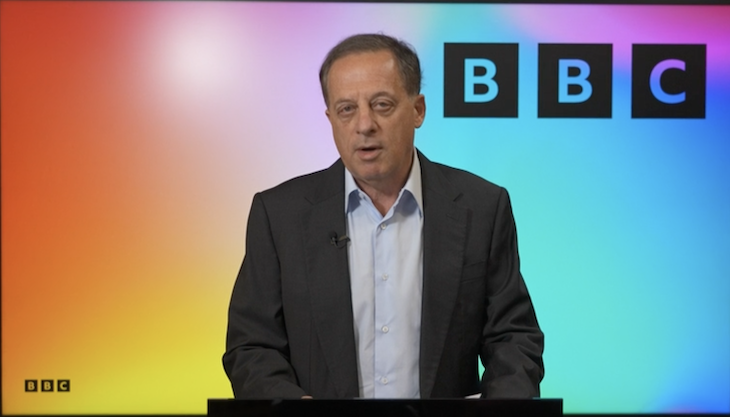Richard Sharp has resigned as BBC chairman following a report into the circumstances of his appointment after claims that he had helped to facilitate a £800,000 loan for Boris Johnson while he was in 10 Downing Street. The report – by Adam Heppinstall KC – found that he had breached the code on public appointments by failing to declare his connection to the loan, which his acquaintance Sam Blyth (a distant cousin of Johnson’s) guaranteed for the former prime minister.
The whole affair is leading to questions over the role performed by Simon Case
Announcing his resignation this morning, Sharp said that he accepted he had breached the ‘governance code’. However, he goes on to note that this ‘does not necessarily invalidate an appointment’, adding: ‘I have always maintained the breach was inadvertent and not material, which the facts he lays out substantiate.’ On that note, Heppinstall found that Sharp’s role regarding the alleged arrangement of the loan was ‘very limited’ but that his failure to mention it to the interview panel risked a ‘perception’ that he had been appointed as a result of his assistance.
Why, then, has Sharp decided to go? The businessman admits that he should have mentioned the ‘potential perceived conflict of interest’ and disclosed to the appointments panel his role in setting up a meeting between Cabinet Secretary Simon Case and Blyth. The Governance Code puts the obligation of disclosure on the candidate. Sharp says he is choosing to step down as he now believes the drama surrounding his position is distracting people from BBC’s work.
It’s also the case that in government Sharp was losing support; the Prime Minister last month declined to offer his backing to the chairman during an interview with Sky News. This reflected unhappiness across government at the negative publicity it was getting, as Sharp was a Johnson appointment. It means Sharp could have felt that he lacked the backing to try to fight on in the face of a report described in the papers as ‘damning’ ahead of its publication.
But this isn’t the end of the matter for the BBC or the government. First a new chairman must now be selected. Next, as tends to be the case with many tricky government situations these days, the whole affair is leading to questions over the role performed by Simon Case. Sharp says that when he introduced Blyth to the Cabinet Secretary he did so with ‘the best of intentions’ and ‘the sole purpose of ensuring that all relevant rules were being followed’.
He goes on to say that he ‘reminded’ Case of the fact that he was ‘in the BBC appointment process’ at the time he set up the meeting. He added: ‘I believed, as a result of that conversation, that I had been removed from any conflict or perception of conflict. I understood this recusal to be absolute. This was my error.’ It’s understood that Case failed to fully corroborate this version of events. While Sharp ultimately concludes that it was his error, the comments will once again raise questions over Case’s judgement.






Comments
Comments will appear under your real name unless you enter a display name in your account area. Further information can be found in our terms of use.